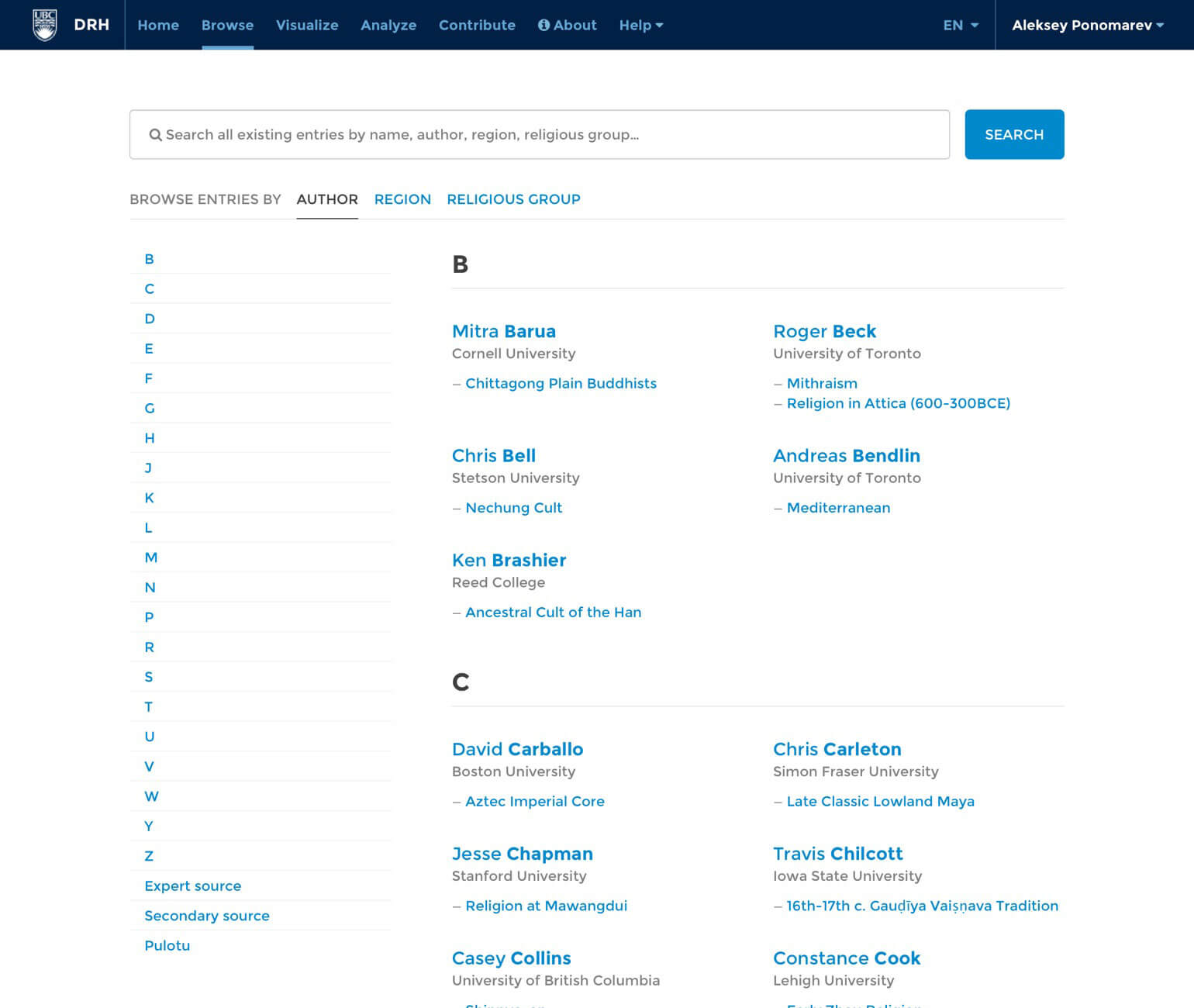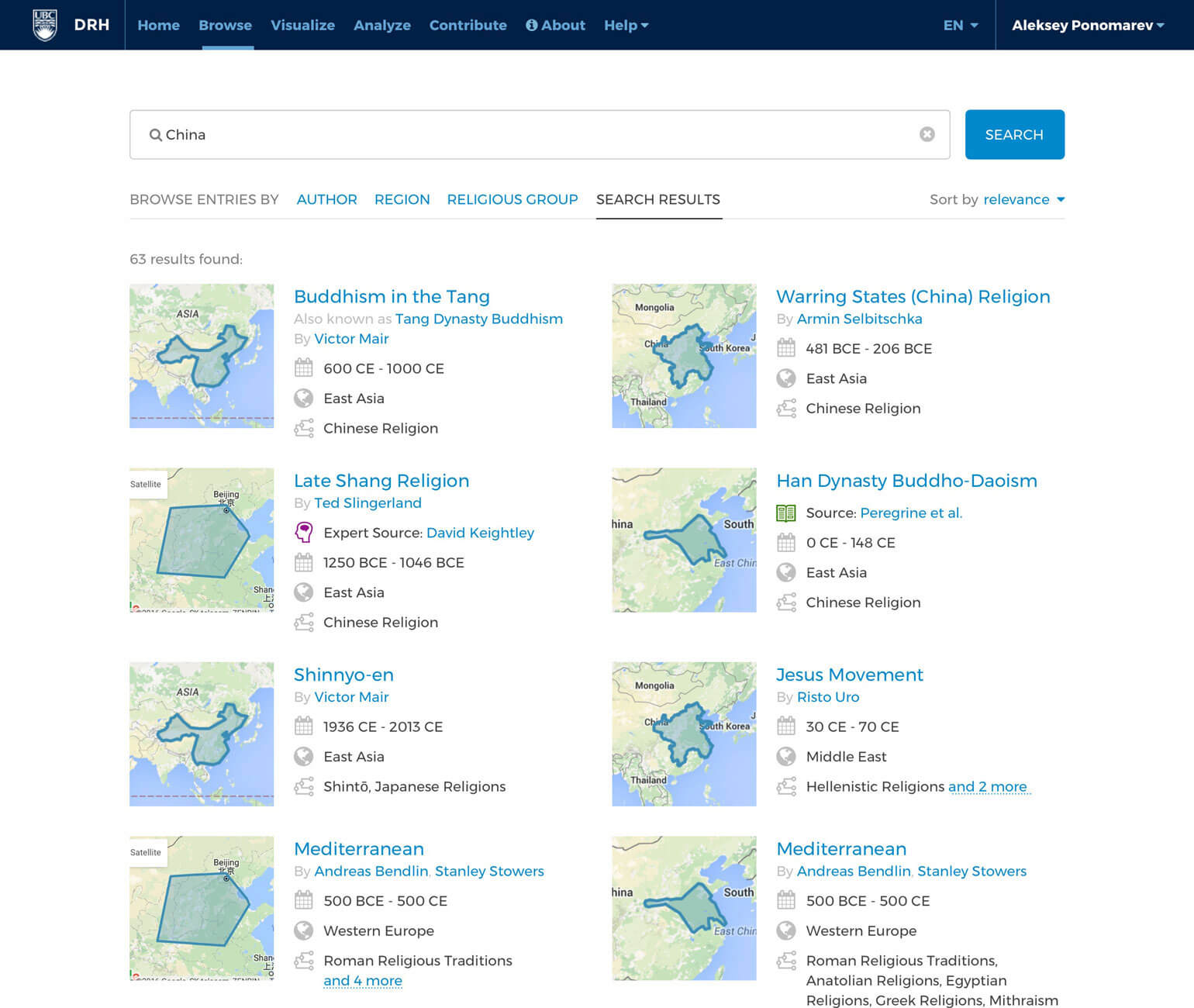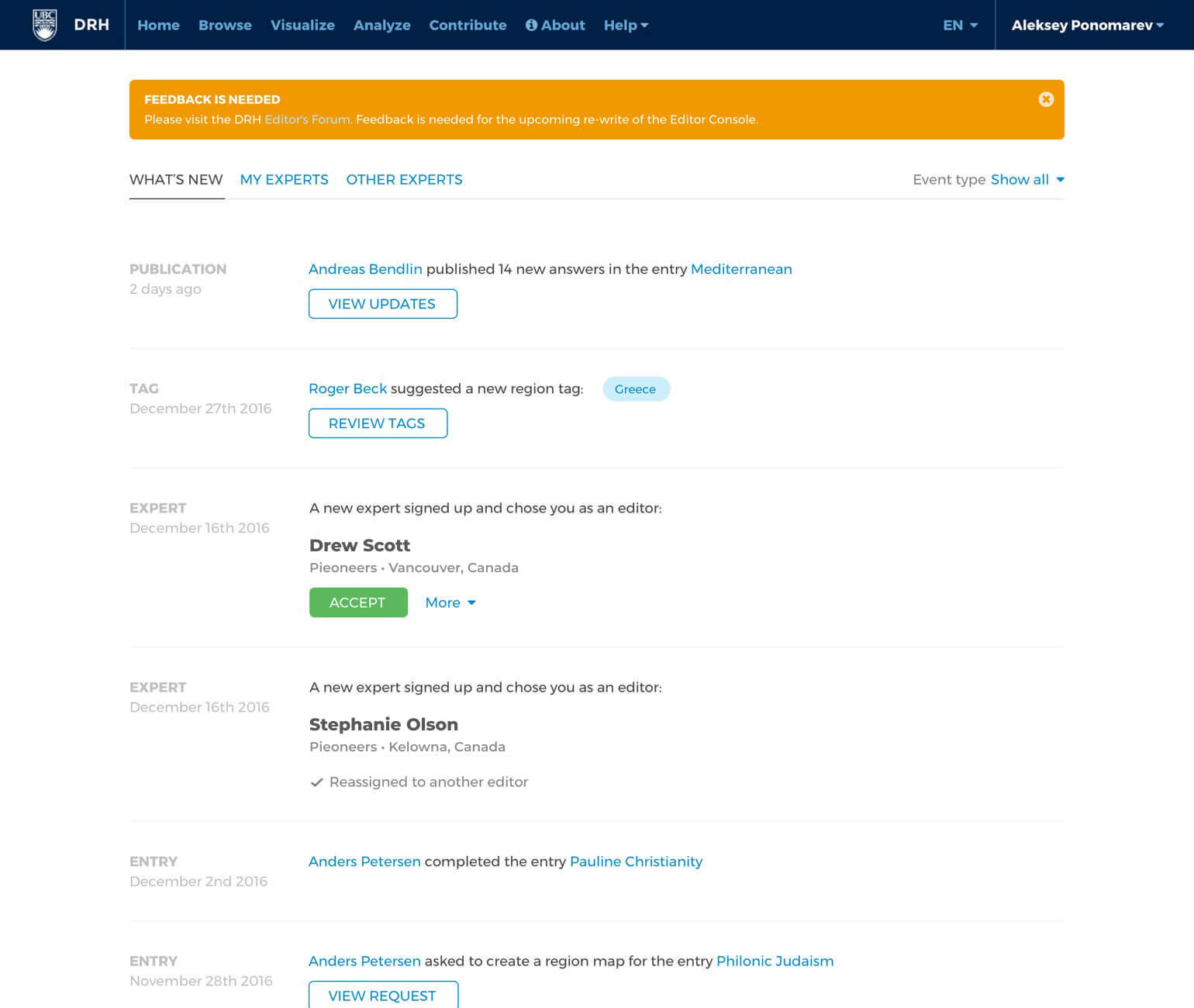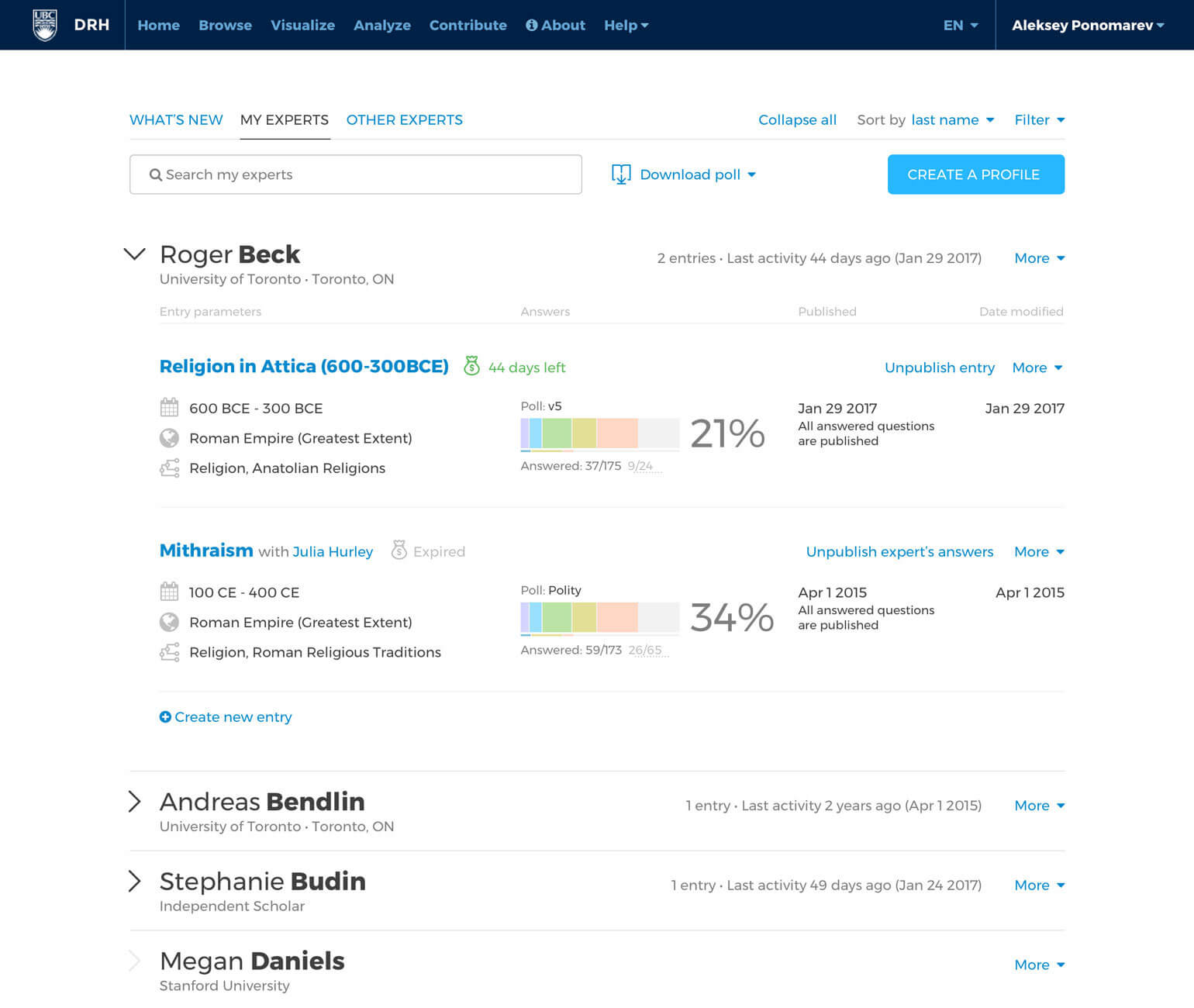UX/UI design & web development for the world’s first comprehensive online quantitative and qualitative encyclopedia of religious cultural history.
Client location: Vancouver, BC; London, UK
The scholars, historians, data analysts and academics that make up the DRH team have dedicated themselves to creating the world’s first qualitative and quantitative encyclopedia of cultural history populated exclusively by experts.
Hailing from UBC, Stanford and the London School of Economics, the team assembled out of a mutual acknowledgement of the fact that it is impossible for a modern scholar to keep up with the current rate of scholarly output.
The mission of DRH is to help scholars in their field overcome data overload by gathering data directly from the experts into a single database that is universally accessible, instantly updatable and infinitely expandable.
Our Involvement
Product strategy
UX & Visual design
Technical Architecture
Workflow Optimization
Hosting & Dev Ops
Technologies
Python
Django
React
Product Brief
To understand the DRH it’s best to follow the path from expert registration to entry publication and analysis.
Questionnaire
The journey begins when an expert registers for an account. Once registered, and approved by an editor in the same field of study, an expert may begin completing a questionnaire.
Questionnaires consist of hundreds of questions that nest in complicated ways and vary depending on the user’s responses.
This is the heart of the DRH system and an area we spent a great deal of time improving to be faster, easier to use, and less daunting for experts.
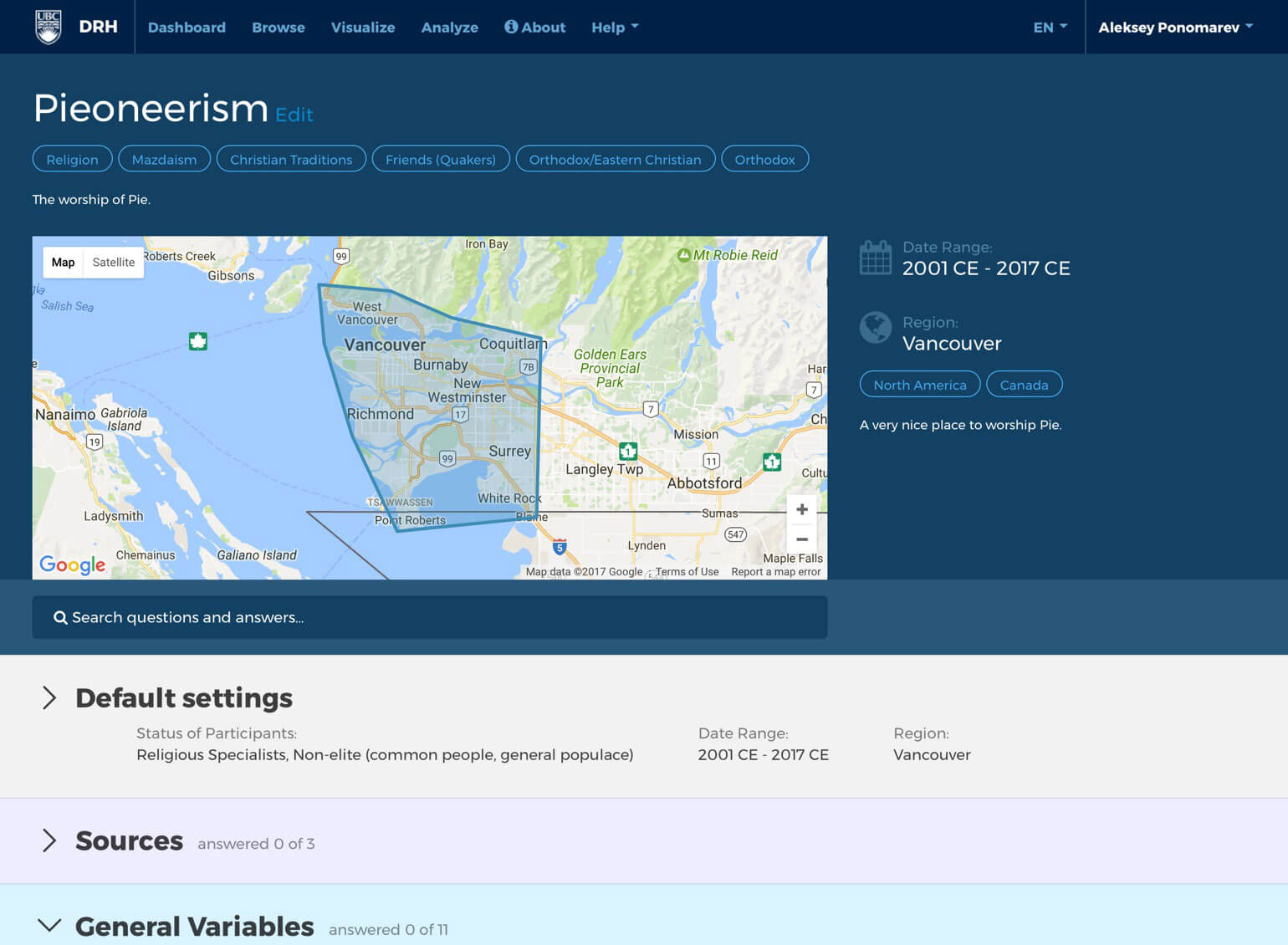
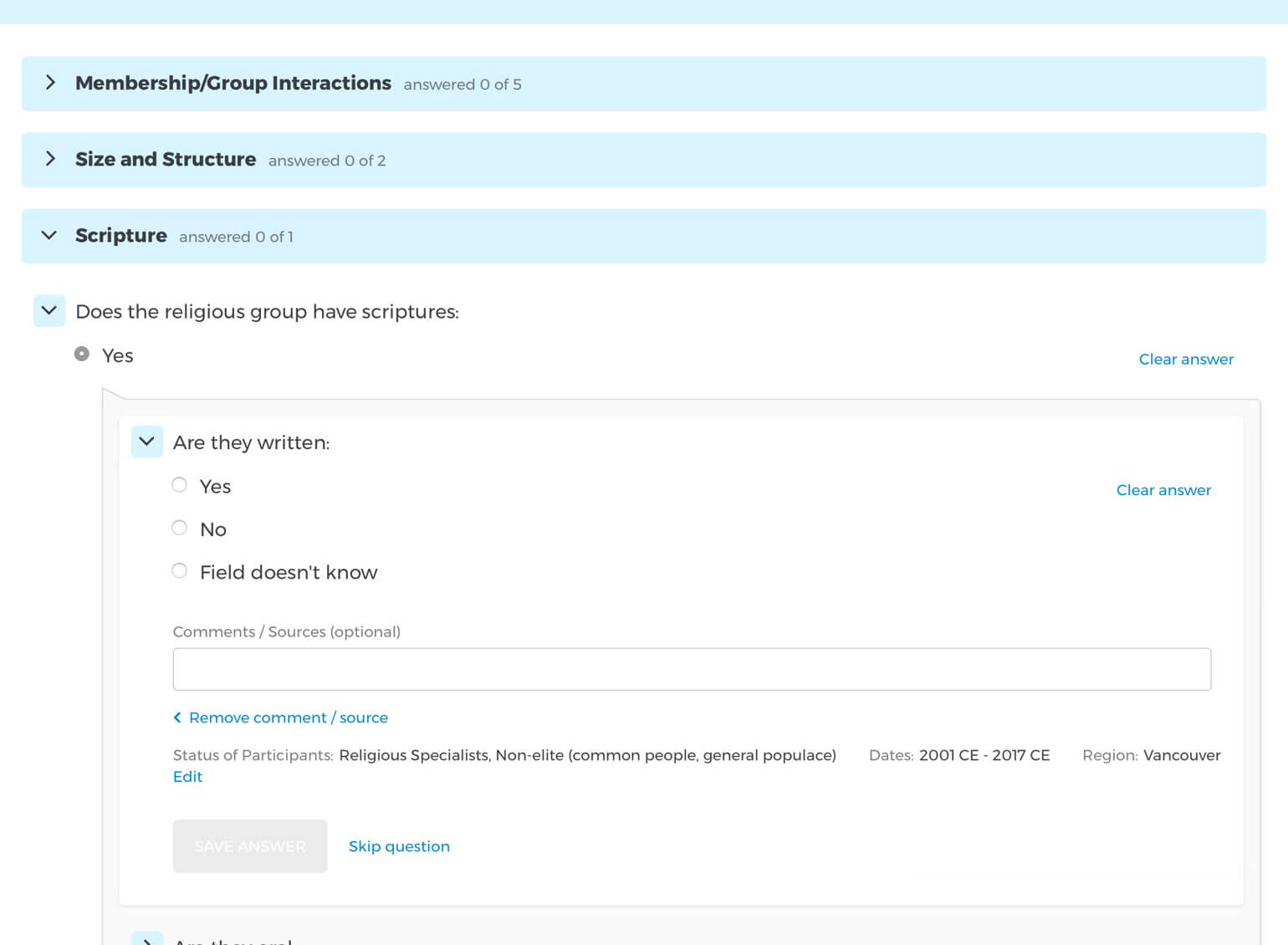
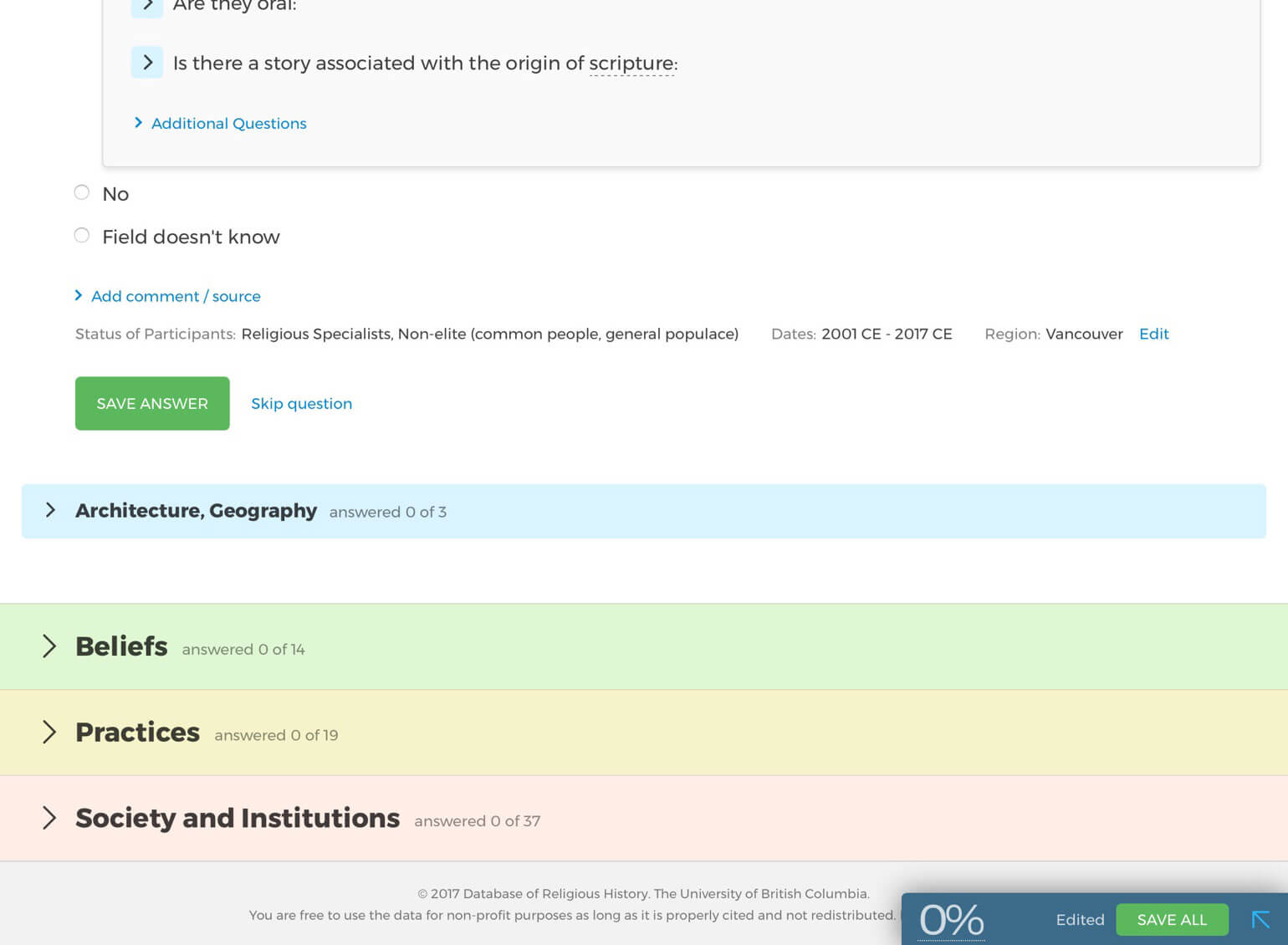
Browse
Once the questionnaire has been answered, an expert can apply to have their entry published. Published entries are available to everyone, and we built an entirely new “Browse” tool to help with search and discovery.
The browse tool allows navigating entries by Author, Region or Religious group and provides, search, sorting and advanced filtering to speed up finding what you’re looking for.
We completely re-engineered this part of the app for speed and ease of use — the feedback so far has been phenomenal.
Try browsing DRH yourself.
Entry
When you’ve found the right entry it’s time to open up the Entry Detail view. This view wraps all the complexity of the questionnaire in an easy to navigate, reader friendly user interface. Read through an entry, jump the part you’re most interested in, download it for offline viewing or challenge the expert’s answer. It’s all possible in the new Entry Detail view.
Go check an example of an entry.
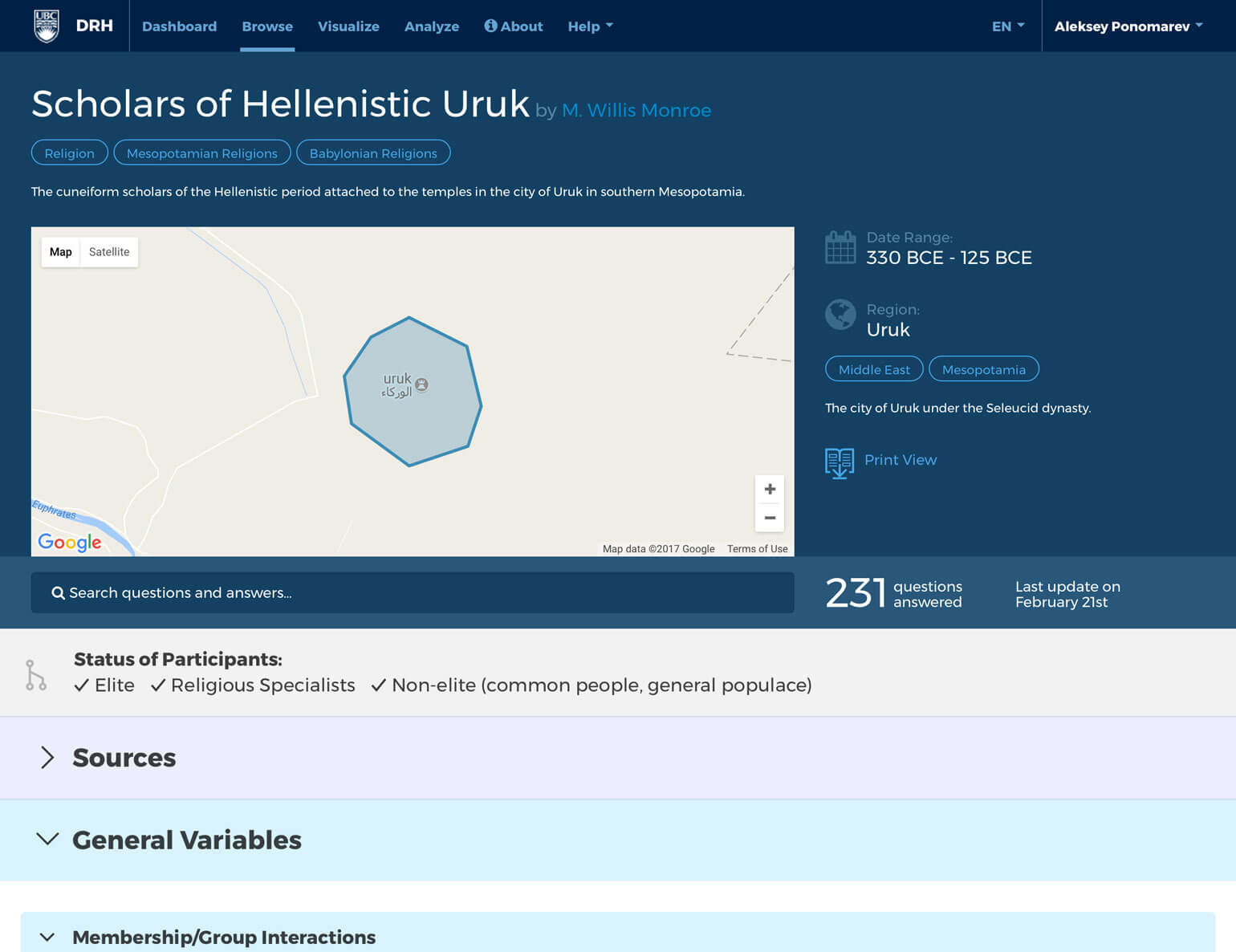
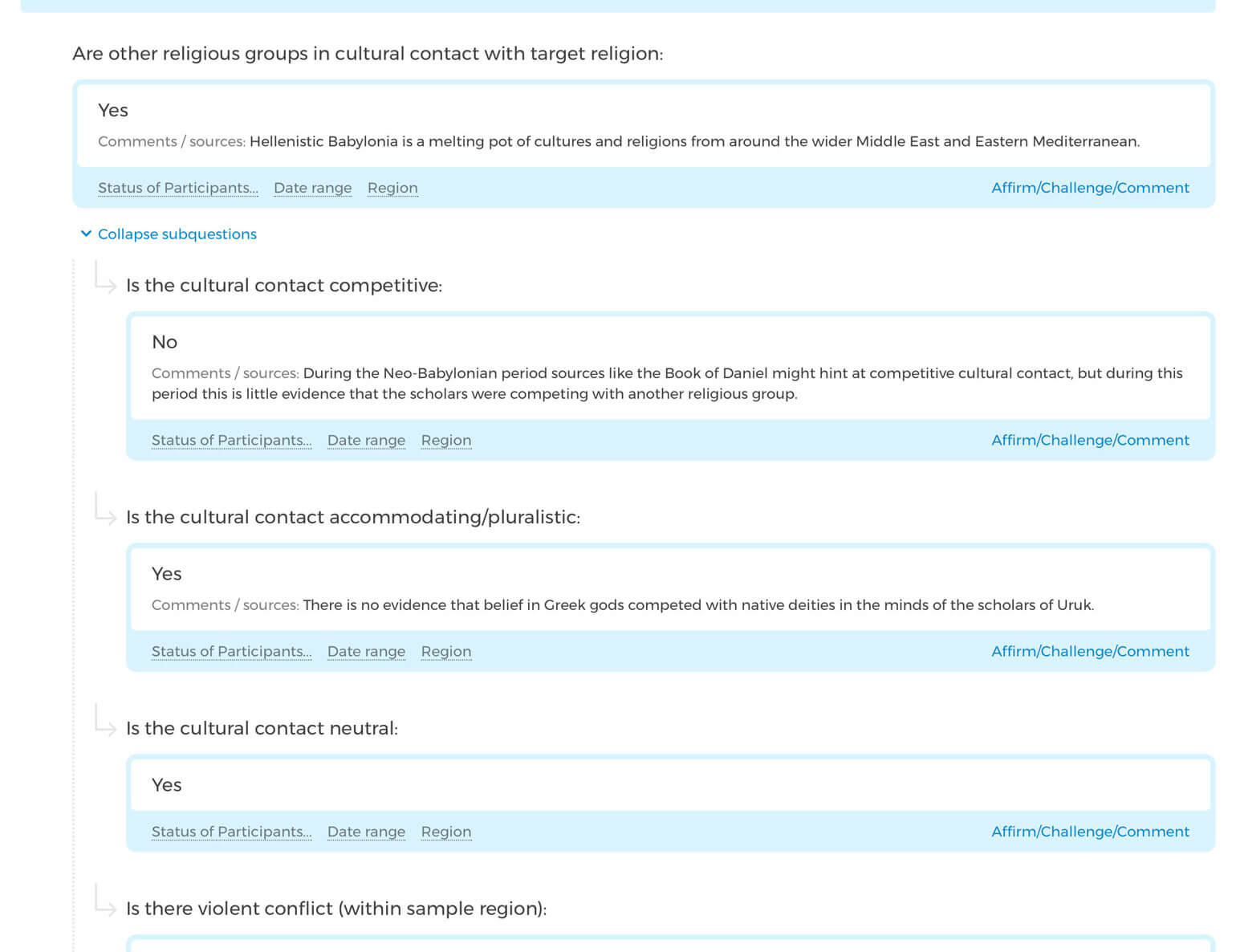
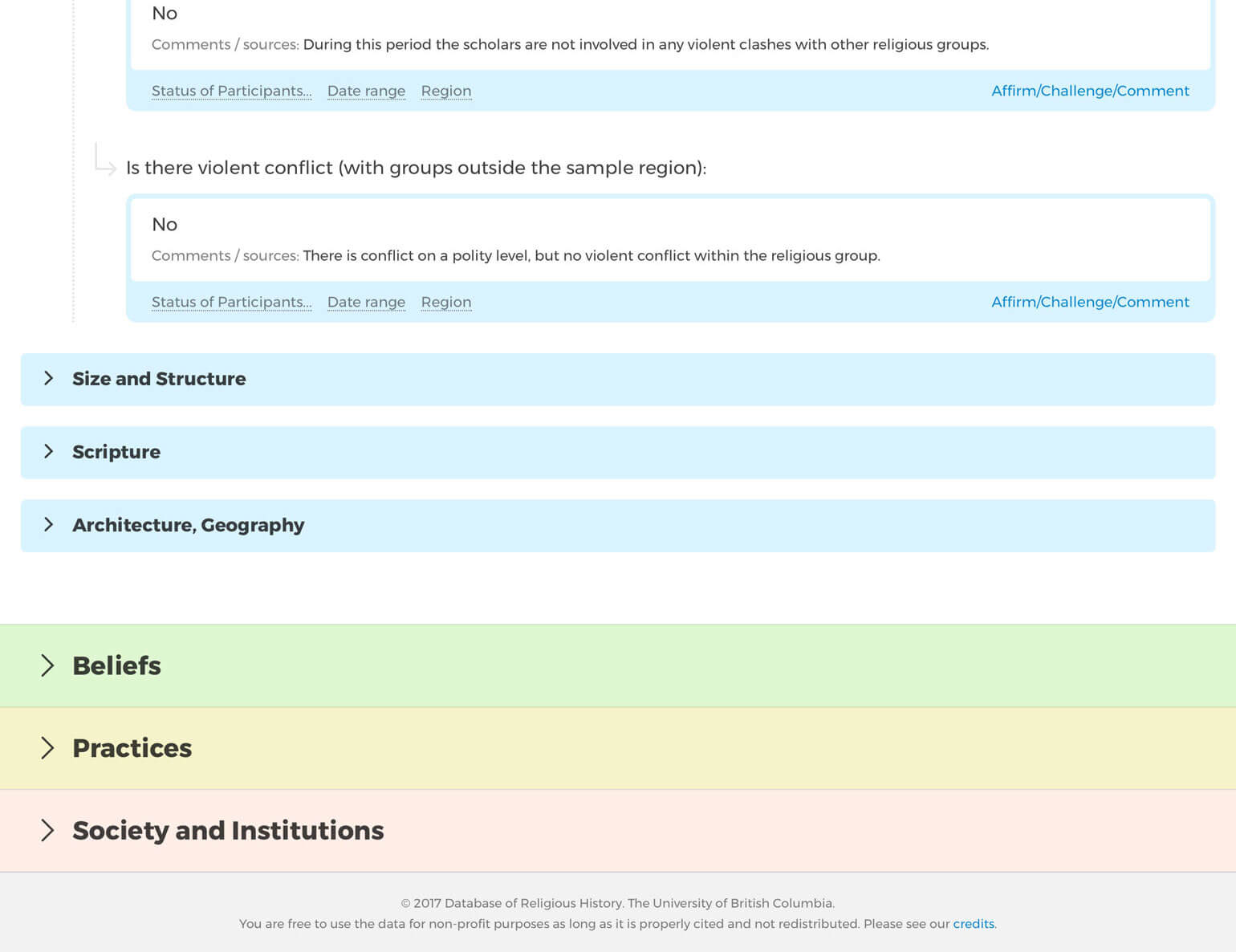
Editor Console
Behind the scenes of all this is an advanced management dashboard called the “Editor Console”. The editor console was purpose built to make it easier for DRH editors, directors and administrators to manage new registrations, existing experts, entries, polls, and the system at large.
Designing this tool required input from multiple members of the DRH team and a core understanding of the workflows and processes that were in place to keep the system operational. The results exceeded all expectations.
Our next priority is to implement advanced tools for visualization and analysis — this is where we truly unlock the power of the database. With the right tools, this rich, journal quality data set will allow scholars to visualize regional and global patterns of historical development and determine what the current scholarly consensus is on a given topic.

Outcomes
A more streamlined expert registration workflow
The old registration form had some critical flaws and left users with a bad first impression so the entire process was reviewed, revised and simplified so that experts now spend less time signing up and more time working on entries.
An entirely new Questionnaire interface
Convincing experts to share their knowledge isn’t easy, getting that knowledge into the DRH should be. The new questionnaire runs client side for super-charged speed, autosaves as the expert answers and provides a far more intuitive interface. 10 out of 10 experts agree — it is a dramatic improvement.
Browse, Filter, Search and Discover
Published entries are easier to find than ever with the new browse tool. Sporting advanced filtering, sorting, search and three different categories to browse, it’s a whole new way for scholars to discover new entries.
Entries redefined
Entries are large and the old interface used to take ages to load and navigating the complex structure was a chore. The new entry detail view is fast – more than 10X faster – and has dramatically improved navigation, readability and the ease of interacting with published entries.
For the Editors
As important as experts are in getting data points into the database, nothing gets published without the hard work of DRH editors. That’s why we designed them an ‘Editor Console’ that lets them see and control everything they need, all in one place. From approving new experts to publishing completed entries and everything in-between, the new Editor Console does it all.
Hyper Advanced Hosting and Dev Ops
The DRH ran on a basic server that was manually configured and updated via SSH. This was both insecure and provided ample opportunity for error since the production credentials were shared and there were many steps to the manual updates. We transformed the DRH’s antiquated setup by first containerizing the app with Docker, then creating an entirely new server setup configured with Ansible and hosted on Amazon. Finally we hooked it all up to our Continuous Integration (CI) and Continuous Delivery (CD) platform built with Gitlab. This is a seriously production grade setup.
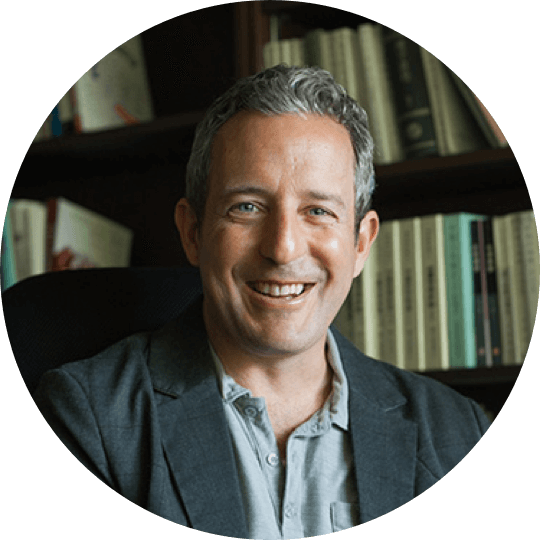
The most obvious outcome is that everyone is now incredibly impressed by the platform when they see it, and experts enjoy interacting with the site and are experiencing much fewer problems.
Things are working so smoothly that we have experts we’ve never heard of signing up, getting approved, setting up their entries, completing the poll, and publishing completely without any hand-holding or glitches, which is simply wonderful and incredible.
Edward Slingerland, Project Director, Database of Religious HistoryProfessor at Department of Asian Studies, UBC
More Projects We Delivered

Innovative mobile application and web platform with integration to medical imaging and health data
Patient portal and web platform for Bodycomp Imaging–a leading provider of DEXA scans, utilizing superior Hologic scanners for high-resolution medical imaging
A web application for a technologically advanced, not-for-profit, sustainability project
A digital score keeping and record management web platform and iPad application for youth sports
A cutting-edge mobile app with bluetooth integration and intuitive UX or a leading precision measurement instrument manufacturer
The Sosido aimed to simplify information exchange, foster idea sharing, and enhance collaborations among healthcare professionals.
